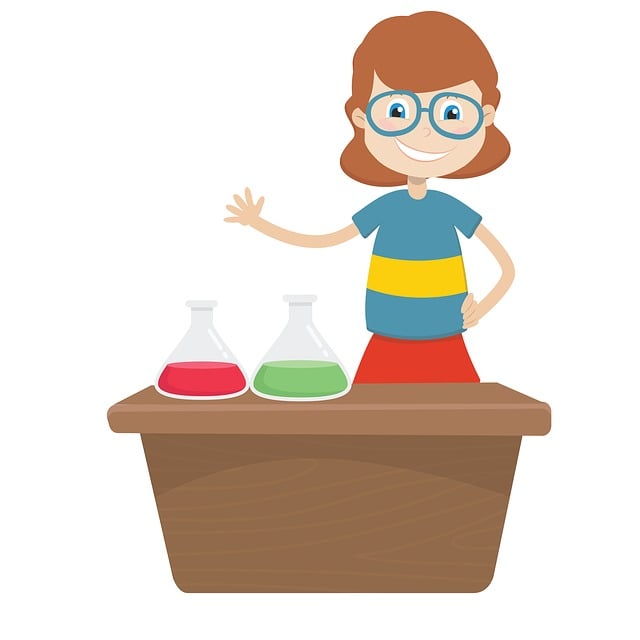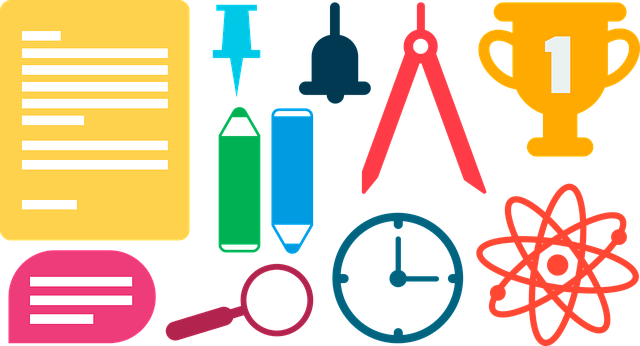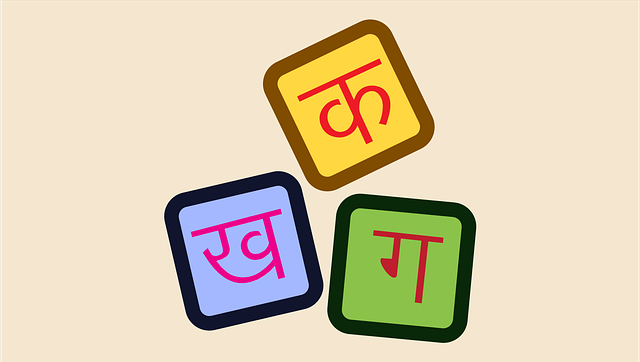In today's diverse academic landscape, Lecture Notes and Teaching Materials (LNTMs) must be accurately translated to ensure global accessibility and inclusivity in education. With the demand for international collaboration and student diversity on the rise, professional translation services are essential to bridge language gaps. These services employ subject matter experts and advanced tools like machine translation and post-editing to deliver high-quality LNTMs that maintain academic integrity while adapting to diverse cultural contexts. Reputable translation providers streamline the process, save institutions time and resources, and facilitate a more engaging learning environment for students worldwide. Technological advancements, including AI and Machine Translation, are revolutionizing language conversion, offering speed and efficiency while human translators remain vital for preserving academic accuracy and cultural nuances.
Academic institutions face a growing demand for precise translations of lecture notes and teaching materials, ensuring accessible and inclusive learning environments. This article delves into the critical need for accurate academic translations, exploring challenges like complex terminology and cultural nuances. We discuss how professional translation companies overcome these hurdles through rigorous quality assurance processes and state-of-the-art technology. Discover the benefits of partnering with reputable providers, gain insights from satisfied institutions’ testimonials, and learn about future trends shaping educational translation services.
- The Demand for Accurate Translation Services in Academia
- Understanding the Significance of Lecture Notes and Teaching Materials
- Challenges in Translating Academic Content
- How Professional Translation Companies Address These Challenges
- Quality Assurance in Lecture Note Translations
- Benefits of Partnering with Reputable Translation Providers
- Success Stories: Testimonials from Satisfied Academic Institutions
- Future Trends in Educational Translation Services
- Ensuring Accessibility and Inclusivity through Effective Translation
The Demand for Accurate Translation Services in Academia
In today’s global academic landscape, the demand for precise and reliable translation services has never been higher. As educational institutions embrace diversity and international collaboration, lecture notes and teaching materials must be accessible and understandable to students from various linguistic backgrounds. Accurate translations ensure that knowledge is conveyed effectively, fostering an inclusive learning environment. Scholars and educators rely on professional translators who possess a deep understanding of both the source and target languages to capture nuanced concepts accurately.
The need for excellence in translation services is particularly critical when it comes to academic content. Lecture notes and teaching materials often contain specialized terminology and complex ideas that require careful handling. Students’ comprehension and retention of these concepts depend on the quality of translation, making it imperative to trust only experienced professionals. By collaborating with reputable translation services, academic institutions can ensure that their resources maintain academic integrity while reaching a diverse student body.
Understanding the Significance of Lecture Notes and Teaching Materials
Lecture notes and teaching materials are essential components in academic settings, serving as primary resources for students’ learning experiences. They provide structured knowledge, facilitate understanding, and enable educators to convey complex concepts effectively. In today’s diverse educational landscape, where many institutions operate globally and attract students from various cultural backgrounds, the importance of accurate and reliable translations cannot be overstated.
When academic institutions trust translation services for lecture notes and teaching materials, they ensure that all learners have equal access to quality education. Well-translated resources bridge the gap between different languages, fostering inclusivity and promoting knowledge exchange. This is particularly crucial in higher education, where academic integrity and the transferability of learning outcomes are paramount. By ensuring clear and concise translations, institutions uphold the value of their offerings, allowing students to engage with course materials without language barriers.
Challenges in Translating Academic Content
Translating academic content, particularly lecture notes and teaching materials, presents a unique set of challenges. One of the primary difficulties lies in capturing the nuanced meaning and technical terminology accurately while maintaining clarity for the target audience. Academic languages often contain complex structures and specialized vocabulary that demand careful handling to ensure precision and fidelity to the original source.
Moreover, the context-dependent nature of language poses another hurdle. What might seem straightforward in one cultural or academic setting may become ambiguous or even misinterpreted in another. Translators must be attuned to these contextual shifts, ensuring that the translated materials not only convey the same information but also resonate with students from diverse backgrounds and academic traditions.
How Professional Translation Companies Address These Challenges
Professional translation companies are adept at tackling the unique challenges posed by lecture notes and teaching materials. They employ specialized translators with deep subject-matter expertise in academic fields, ensuring precise and contextually appropriate translations. These companies also understand the importance of consistency, terminology management, and cultural adaptation, which is crucial when translating educational content.
Additionally, they utilize advanced technologies like machine translation and post-editing to streamline the process while maintaining quality. This combination of human expertise and innovative tools allows them to deliver high-quality translations that accurately convey complex academic concepts, making lecture notes and teaching materials accessible to diverse audiences worldwide.
Quality Assurance in Lecture Note Translations
Ensuring high-quality translations for lecture notes and teaching materials is paramount in academic settings, where precision and clarity are non-negotiable. Educational institutions rely on accurate interpretations to convey complex concepts effectively to students worldwide. To maintain rigorous standards, a comprehensive Quality Assurance (QA) process is implemented. This involves multiple rounds of review by expert translators who specialize in academic language.
The QA protocol includes careful editing, proofreading, and fact-checking to verify the integrity of the translated content. It also mandates adherence to the source material’s tone, style, and terminology to ensure consistency and avoid potential misinterpretations. Advanced translation tools and technology are leveraged to streamline the process while maintaining accuracy, making it possible for academic institutions to trust the precision and quality of their lecture notes and teaching materials translations.
Benefits of Partnering with Reputable Translation Providers
Partnering with reputable translation providers brings numerous benefits for academic institutions looking to enhance their international reach and educational offerings. By entrusting the translation of lecture notes and teaching materials to professionals, institutions can ensure accuracy, consistency, and cultural adaptability across diverse languages. This is particularly crucial in today’s globalized education landscape where students and faculty from various countries collaborate and learn together.
Reputable translation providers offer specialized knowledge in academic subject matters, enabling them to capture nuanced terms and concepts accurately. They employ experienced linguists who understand the importance of preserving educational integrity while translating. Additionally, these providers often have robust quality assurance processes in place, including proofreading and editing checks, to guarantee error-free content. Such partnerships can save academic institutions valuable time and resources, allowing them to focus on their core mission of knowledge dissemination.
Success Stories: Testimonials from Satisfied Academic Institutions
Academic institutions worldwide have been quick to recognize the value of accurate and high-quality translations for their lecture notes and teaching materials. Many have turned to professional translation services, including ours, to ensure that their academic content is accessible and effective in a globalized education landscape. We’ve had the privilege of working with top universities and colleges who share their success stories, highlighting how our translations have positively impacted their teaching and student experiences.
These institutions praise our ability to capture complex academic concepts accurately while maintaining clarity and coherence. Testimonials mention improved student engagement, better comprehension of course material, and increased satisfaction among faculty members. By providing translations that meet the unique requirements of lecture notes and teaching materials, we’ve helped these academic bodies foster a more inclusive and globally connected learning environment.
Future Trends in Educational Translation Services
The future of educational translation services is poised for significant evolution, driven by advancements in technology and a growing demand for accessibility. With lecture notes and teaching materials playing a pivotal role in academic excellence, translation services must adapt to meet the diverse needs of learners worldwide. Artificial Intelligence (AI) and Machine Translation (MT) are at the forefront of this transformation, offering unprecedented speed and efficiency. These tools can facilitate real-time language conversion, ensuring that students have access to up-to-date resources regardless of their geographical location.
Furthermore, human translators will remain indispensable in refining machine translations, adding cultural nuances, and maintaining academic integrity. Personalized learning experiences will become the norm, with translated materials tailored to individual student needs. This evolution promises not only improved accessibility but also enhanced understanding, fostering a global academic community where knowledge is shared without linguistic barriers.
Ensuring Accessibility and Inclusivity through Effective Translation
In today’s global academic landscape, ensuring accessibility and inclusivity is paramount for educational institutions. Effective translation plays a pivotal role in this regard, especially when it comes to lecture notes and teaching materials. Accurate and culturally sensitive translations enable students from diverse backgrounds to engage fully with course content, fostering an inclusive learning environment.
By leveraging professional translation services, academic institutions can guarantee that their lecture notes and teaching materials are accessible to all. This involves not just translating words but also adapting content to align with local cultural nuances, terminology, and educational standards. Such efforts facilitate comprehension, encourage active participation, and ultimately enhance the overall learning experience for students from various linguistic and cultural backgrounds.
Academic institutions face a growing demand for precise and reliable translations of lecture notes and teaching materials, especially in today’s globalized educational landscape. By partnering with professional translation companies, they can ensure high-quality output that meets their specific needs. These companies employ specialized linguists who understand academic terminology, thereby preserving the integrity of the content. With rigorous quality assurance processes in place, these providers deliver accurate translations that enhance accessibility and inclusivity for diverse student bodies, fostering a richer learning experience worldwide.



